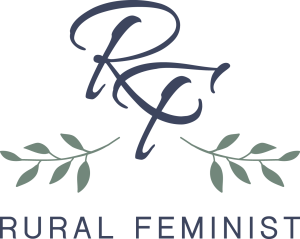Rural Feminist Speak at FSU
Two representatives from the group Rural Feminist discussed their organization and feminism on April 3 in Gira Center room 397.
Jackie Phillips and Sharon Warner were the two women who spoke that night. Both of the women are from Pennsylvania; Phillips is from the coal region, and Warner is from rural Lancaster County. The history of rural America, its tie to feminism, and what the organization does were all discussed at the event.
Warner spoke for the majority of the event, and she began with educating the crowd on relations between the Agrarians, a group of people who had no interest in participating in the structure of the country, and the U.S. government. She discussed the oppression and marginalization forced upon the group and how it led to the world’s views on rural communities. She aligned the oppression with the Native Americans’: “you can see that in a lot of populations this logic was used when the United States was trying to take land from Native Americans.” She believes the American government unfairly pushed modernity onto the Agrarians and the Native Americans. When the Agrarians would not conform, Alexander Hamilton put a tax on the group’s whiskey. This mechanism was used to dismantle the group, and they were forced to join the capitalistic society. Alexander viewed this as a step towards progression for the country. “At worst, we can say that he was essentially purposefully impoverishing these communities just to quell this threat to the United States government,” Warner stated.
Warner explained to the crowd why the piece of history was important: “I’m not a historian. The reason I bring these stories up is because I think it is really relevant to remember Appalachia today. These communities are not impoverished because a lack of work ethic, morals, or bad culture.” She believes the government and big corporations deliberately made conditions low for the communities.
Rural Feminist and groups like it started to highlight the political potential for progression in rural areas. “I think there is a lot of power addressing that rural America has gone through a lot of the same struggles that other communities have,” Warner stated. She believes that sharing these stories of communities being taken over by exploitation aids in forming bigger movements for change.
The group’s initial activity was interviewing close to 50 rural women from different political parties with feminism related questions. Warner reported hesitance from a lot of the women to fully associate themselves with the word feminist. The women were also asked what they think is the most significant political problem that women face in today’s world. The answers ranged from healthcare, daycare, sexual assault, and patriarchy. The interviewees were more inclined to answer the second question than the first. Feminism was not a word they wanted to align themselves with; however, their ideas of free healthcare and daycare for women were radical ideas.
To some women of rural areas, feminism does not offer them much. Women who are pro-life, single moms, and working entry level jobs did not view feminism as beneficial to them, when asked. “I think these women would benefit from feminism, and it is somebody’s job to reach out to them; we are kind of taking it upon ourselves to do so,” she said. Furthermore, Warner addressed why inter-sectional feminism is important in getting women who are not white and upper-middle class to engage in these movements. To her, people need to see themselves represented in these movements to feel comfortable.
The organization has sets of values that range from supporting women in education, healthcare, bodily rights, and equal pay.





